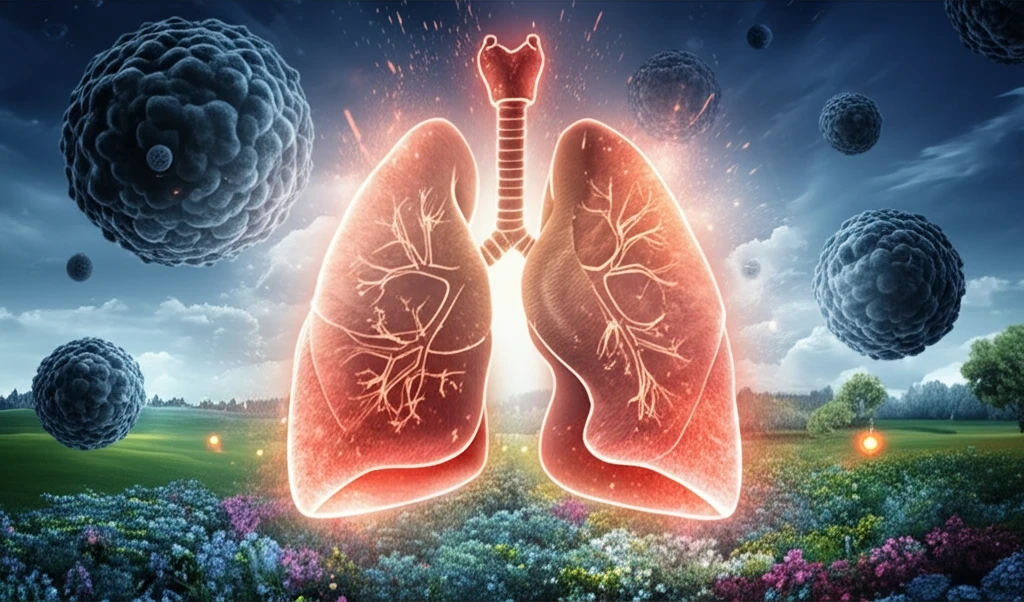
Lung Health Breakthroughs: New Research Unveils Key Strategies for Respiratory Wellness
"Stay Informed: Discover the latest junior investigator research that could transform lung disease treatment and prevention."
Maintaining healthy lungs is crucial for overall well-being, as they are responsible for vital functions such as oxygen intake and carbon dioxide removal. Lung diseases can significantly impact quality of life, making it essential to stay informed about the latest research and strategies for prevention and treatment. Recent studies by junior investigators are shedding light on various aspects of lung health, offering new hope for individuals at risk or currently battling respiratory conditions.
This article delves into cutting-edge research highlighted by junior investigators, focusing on key areas such as alveolar repair mechanisms, the role of specific transcription factors in lung injury, the relevance of animal models in human lung disease research, and the impact of obesity on respiratory health. By understanding these advancements, individuals can make informed decisions about their lung health and explore potential avenues for early intervention and improved outcomes.
We will break down complex studies into easy-to-understand language, emphasizing actionable insights and practical takeaways for maintaining healthy lungs. Whether you're a healthcare professional, a patient, or simply interested in learning more about lung health, this article provides valuable information to empower you on your journey to respiratory wellness.
Understanding Alveolar Repair Mechanisms: Foxp3+ Regulatory T Cells and Lung Epithelial Proliferation

The alveoli, tiny air sacs in the lungs, are essential for gas exchange. When lung injury occurs, the alveoli can be damaged, impairing their function. Effective repair of these alveoli is critical for restoring normal lung function. Recent research has focused on understanding the mechanisms that regulate alveolar repair, particularly the role of epithelial progenitor cells, which must proliferate and differentiate into thin type I alveolar epithelial cells to re-establish a functional alveolar surface.
- Key Findings: Tregs produce keratinocyte growth factor (kgf), which promotes alveolar epithelial proliferation.
- Experimental Models: Adoptive transfer of Kgf/ Tregs decreased the rates of type II alveolar epithelial cell (AT2) proliferation.
- In Vitro Studies: In vitro coculture experiments demonstrated a direct effect of Treg-expressed kgf on AT2 cell proliferation.
Take Action for Your Lung Health
Staying informed about the latest research is a powerful tool for promoting lung health and preventing respiratory diseases. By understanding the mechanisms involved in lung repair, the role of specific transcription factors, and the impact of lifestyle factors such as obesity, individuals can take proactive steps to protect their lungs and improve their overall well-being. Consult with healthcare professionals to discuss personalized strategies for maintaining optimal respiratory health.
